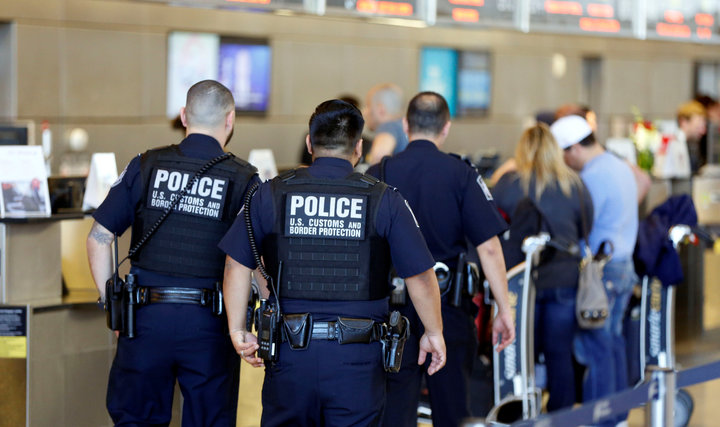Controversial “Pre-Clearance Act” Expands Power of American Border Guards on Canadian Soil
March 29th, 2018 by SRW Lawyers
A controversial Canadian bill that expands the powers of U.S. border officers working in pre-clearance zones on Canadian soil was recently given Royal Assent and is set to become law. Championed by Canada’s centrist Liberal Party, Bill C-23—commonly referred to as the Pre-Clearance Act—has been criticized as overly broad, with the potential to open the door to human rights violations.
In May 2017, a national coalition of 43 Canadian civil society organizations called the International Civil Liberties Monitoring Group voiced their concerns about Bill C-23 to Parliament. They questioned the purpose of the bill, noting that no evidence has been presented to the public that security measures need to be increased. The ICLMG’s brief and recommendations can be found here.
Broadly speaking, C-23 increases the powers afforded to American border officers working in Canadian pre-clearance zones and eliminates crucial existing restrictions. Key concerns raised by Canadian immigration attorneys include:
- U.S. border guards will be authorized to conduct strip searches and internal cavity searches when Canadian officers are “unable or unwilling” to do so. The broad language used appears to authorize U.S. border officials to conduct these searches even when Canadian officers deem them unnecessary or inappropriate.
- U.S. border guards will be allowed to carry firearms. They have not been permitted to do so in pre-clearance zones under previous legislation.
- Should a Canadian traveler attempt to enter the U.S. but change their mind for any reason, including feelings of discomfort or concern about their interactions with border officials, U.S. officials will be permitted to detain and interrogate them. Previously, the traveler would have been able to withdraw and return to Canada at any time. C-23 also eliminates a provision that barred U.S. border officials from using a citizen’s withdrawal from pre-clearance procedures as “reasonable grounds for suspicion” to detain them or work with Canadian officials to take steps like arresting the traveler.
The above issues are particularly concerning because, although the bill states that U.S. officials must still act in accordance with Canadian laws, it provides no clear legal remedy to travelers whose rights have been violated. Instead, according to the Canadian Muslim Lawyers Association, the bill “provides explicit blanket immunity” to pre-clearance officers, and only allows travelers to hold the U.S. government responsible in cases of property damage, injury, or death. Notably, there is no legal mechanism through which Canadians can hold U.S. officers responsible for discrimination, despite a recent rise in allegations of discrimination at the border. Under Bill C-23, U.S. officers in pre-clearance zones would be “virtually unaccountable,” said Vance Langford, chair of the National Immigration Law Section of the Canadian Bar Association.
The full text of the finalized bill is available on the Canadian Parliament’s website.
If you have questions about the provisions or implications of Bill C-23, including how it may affect your ability to enter the U.S. temporarily or permanently, please reach out to us. We look forward to assisting you with your immigration matter.

